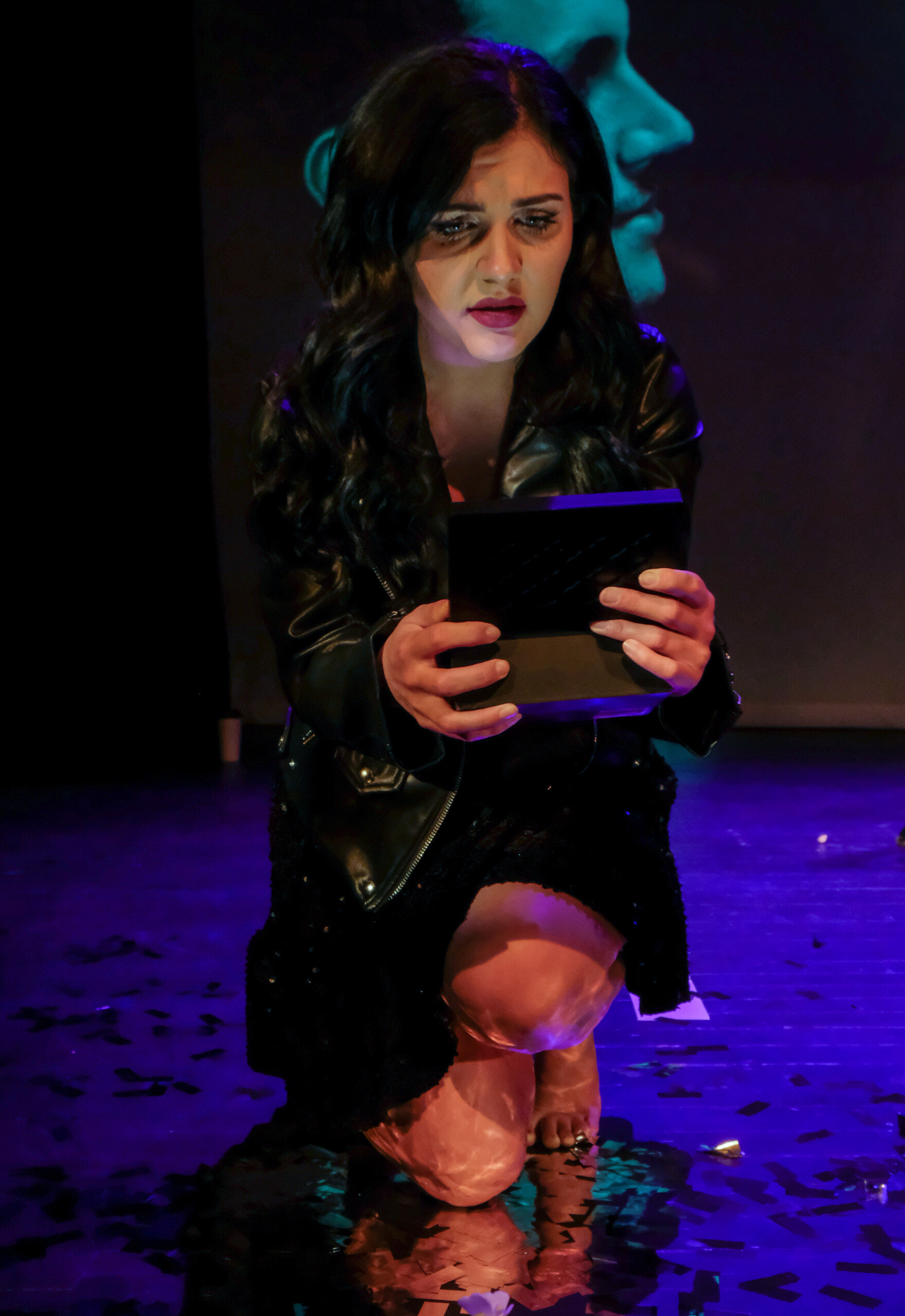July 30, 2022
Despite the issues surrounding the performing arts in this country, Opera Maine is offering a most ambitious season with a pair of big deals. Wagner’s The Flying Dutchman which opens next month, and Philip Glass’ The Fall of the House of Usher, given last night at the Westbrook Performing Arts Center.
Richard Gammon’s production is stark, sparse, but effective. A table, chairs, a bed, bottles everywhere, and a screen projecting live film of the grounds, etc., along with static images of the characters ranging from nearly beatific to demonic, including a jarring set quickly alternating between their normal faces with blood-drenched ones straight from a nightmare. All set the mood and spurred a tale where not much happens, moving it forward almost breathlessly.
Updated to the present, we see William, after Roderick’s letter of despair, driving to the haunted mansion, facing us, driving while the road is in the opposite direction, subtly registering his fearful dread.
Another element I found of particular interest was everyone being barefoot. The symbolism of bare feet is powerful with myriad meanings: innocence, death, aimlessness, separation from earthly things and entrance into holy spaces. Subtle, and often unnoticed it adds an element that registers directly into the psyche of a work as evidenced here.
Contemporary costumes worked, including Madeline’s short sparkling black dress – which quickly disappeared revealing a camisole and boy shorts, all helping define the characters. William’s tee-shirt emblazoned with a skeleton surrounded by the sun, was perfection.
Poe’s ambiguous tale has been open to myriad interpretations over a century. Fueled by mystery, drug and alcohol induced madness, homosexuality, the implication of murder, incest, and most horrifically, vivisepulture, it is a juicy tale of madness. Glass’ score achieves its desired result beautifully.
The trio of William, Roderick and the wordless – but hardly voiceless Madeline – declaim, shout, and sing beautifully throughout in wonderful vocal lines Glass carefully wedded to the libretto. The sense of these people knowing, each other, in love with each other, repulsed and horrified by each other came through in every gesture and movement.
As Roderick, Joseph Tancredi offered clarion tenor tone while wavering between desperation and madness. One felt for the guy whilst simultaneously uncomfortable with this fellow clearly on the brink. Gabrielle Clutter’s Madeline was lovely and, likewise, spooky. With a voice of surprising size and beauty, though, Madeline’s wordless vocalises did at several times overpower Roderick and William’s narrative. Appearing as William, Marcel Sokalski rendered a beautiful baritone, while exhibiting completely the man’s nervous sincerity as well as sense of morbid curiosity and innocence tying the story together perfectly.
The small roles of Servant and Physician were well served by Miguel Pedroza and Joseph Sacchi.
Jackson McKinnon led the ensemble of about a dozen in an energetic and mesmerizing reading, the pacing, pauses and synchronicity between stage, screen and pit often exquisite.
Overheard from a visiting couple behind me, “Well, we wouldn’t be seeing this in Arkansas.” More’s the pity. There’s another performance on Friday, July 1st. Go.

